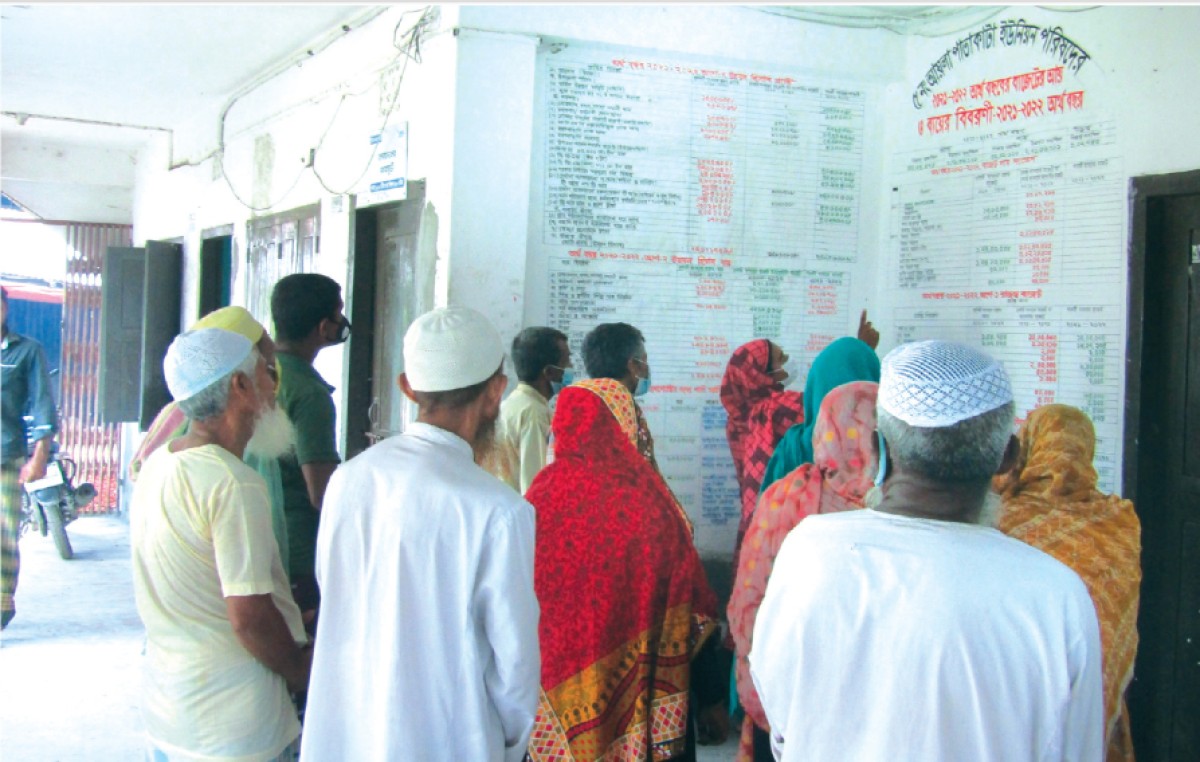More money and more confidence: WASH committees in Bangladesh achieve spectacular results
Water and sanitation committees in Bangladesh urge their local government to put safe water first in their budgets. Simavi trains and guides them.
Safe drinking water and good sanitation cost money. A lot of money. Especially in a country like Bangladesh, where 21 per cent of the population still has no access to safe drinking water and 51 per cent has no access to a decent toilet. Financial support from foreign governments and NGOs can facilitate (a little), but the biggest task lies with central and local governments.

Local governments need to allocate more funds for water and sanitation
The good news is that the budget for water and sanitation in Bangladesh has doubled since 2019. The bad news: calculations show that much more is still needed to meet the development goal of water and sanitation for all in Bangladesh by 2030. This means that local governments in particular need to give greater priority to water, sanitation and hygiene (WASH), especially to communities and groups that are most disadvantaged.
But how do you ensure that a larger share of the budget does not go to, say, a new road, but to much-needed water facilities? The answer is organising public participation. Especially participation of women and girls, for whom lack of access to water and sanitation is often a major problem.
In Bangladesh, all budget discussions are public and governments must also show how the money is spent. This is called the open budget process, something that was introduced in 2006 but is still far from being applied everywhere.
At present, as many as 70 per cent of the WASH committees chair are women. In contrast, women were hardly involved before.
Strengthening WASH committees
Within the WASH SDG sub-programme Bangladesh, Simavi has focussed on strengthening communal water and sanitation committees, the WASH committees. This was done through, for example, providing training and guidance and ensuring that women are given a more important role within these committees. At present, as many as 70 per cent of the WASH committees chair are women. In contrast, women were hardly involved before.
This has enabled the WASH committees to make well-founded requests during local budget discussions for causes such as more investment and better maintenance of water facilities and building toilets for girls in schools. The committees also monitor the implementation and how much of the budget benefits people who are often overlooked: women and girls, the elderly and people living with disabilities.
"In four years, tax revenue in my community has tripled."
Growth of hundreds of percent
The results are impressive. In the three municipalities where Simavi works (Satkhira, Kalaroa and Barguna), spending on water, sanitation and hygiene has increased by hundreds of percent since the 2018/2019 financial year. In Satkhira, the budget increased from $281,000 to $1,642,000 in the 2022/2023 financial year. In Kalaroa, it went from $30,000 to $539,000 and in Barguna from $59,000 to $716,000.
All this led to an increase in the residents' confidence in their local government. Due to the open budget process, people see what happens with the budget and see that the financial means now reach the people who really need it. "In four years, tax revenue in my community has tripled," observed Abdul Kuddus Alo Akand, chairman of the Barguna Sadar Union Parishad. And that money and trust is important to ensure that changes are not temporary but lasting.
About the WASH SDG programme
WASH SDG is a six-year programme led by Simavi aiming to improve access to and use of safe drinking water, sanitation and hygiene in seven African and Asian countries. Specific attention is given to gender and social inclusion, climate risks and climate resilience. The programme is implemented by the WASH SDG Consortium comprising SNV, WASH Alliance International and Plan International and is supported by the Dutch Ministry of Foreign Affairs. The programme is organised into 14 sub-programmes, three of which are directly led by Simavi. To achieve sustainable change, the programme works with local partners.

